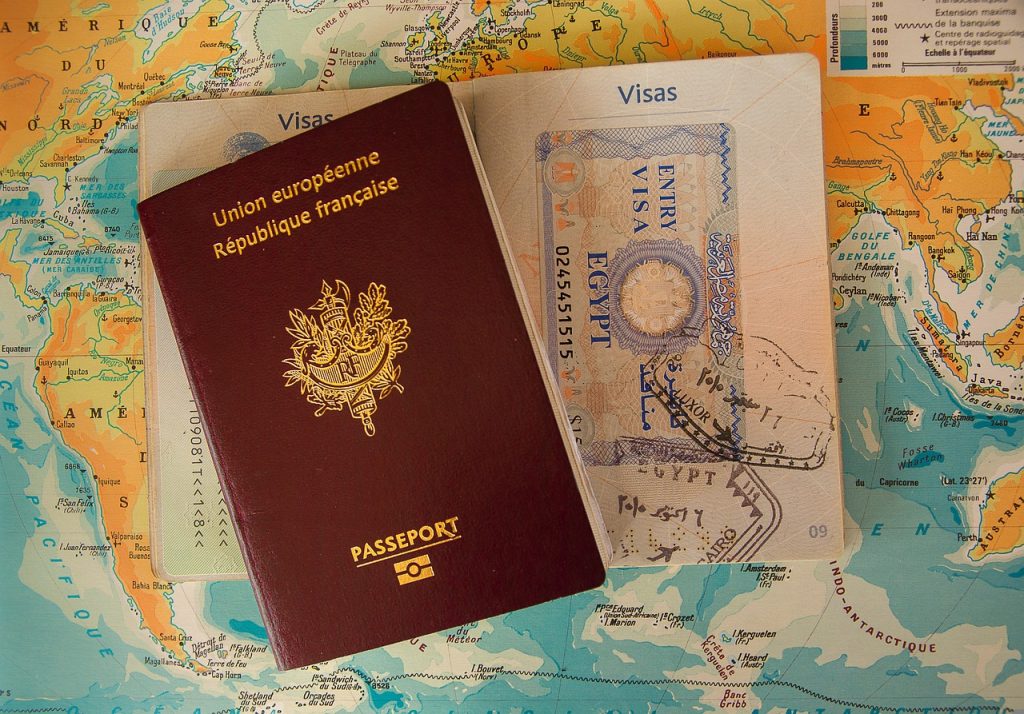You found a country that you connect with so much that you’ve decided you need to move there. Maybe it’s the country your ancestors are from. Maybe you had the best vacation of your life there, or maybe you’re driven by the desire to master a new language. Whatever your motivations, moving abroad is a huge step that should never be taken lightly. There are so many factors to consider before making a decision that could change the entire trajectory of your life.
Often the hardest part is making the decision in the first place. How do you know when it’s time to start planning your move abroad? What are the most likely challenges you’ll face along the way?

When I think back to my own decision to move to Italy, it happened slowly over a long period of time—more than 20 years, in fact. One of the reasons that my process took so long was because I didn’t know how to put all the pieces together. But it’s hard to find the right answers when you don’t even know which questions to ask.
With a lot of trial and error, I finally figured it all out on my own–so now, you don’t have to. Here are the top 3 questions you should consider before moving abroad:
1. Why do I want to move abroad?
I had dreamt about living in Italy for 22 years before I decided to move here. My family on my mother’s side were from Sicily, so I had a strong connection with Italian culture since childhood.
When I spent two months in Italy as a college student, that connection with my family history grew even stronger. There were other reasons for why I chose this particular time in my life to make the life-changing move, but my primary motivation had never changed. See the series I posted on Tiktok for the full story about why I moved to Italy .
Falling in love is a common scenario for moving abroad, but it’s important to consider all possible consequences before deciding to move. If you’ll be dependent on that person for financial support, housing, and communicating with locals, you could end up in a precarious position if the relationship ends. Ask yourself if you’d want to stay in the country without your partner. If not, you’ll want to have an alternate plan for the worst-case scenario.
If you want to move abroad because your life is a mess and you think your problems can be solved by moving as far away as possible, jetting off to a different country is probably not the best plan. Perhaps you’ve been inspired to seek adventure after watching carefully curated travel videos on social media? Before packing your bags, do some more thorough research about your dream country. The reality of daily life may not meet your expectations.
2. How can I move abroad (legally)? What are my visa options?
It always surprises me how many people I’ve met, bubbling over with excitement about their new life in a new country, who seem shocked that they need a visa to stay there longer than 90 days. Visa requirements vary widely depending on the country you are moving to and which country you’re moving from. But it is one of the first details you need to figure out before making any other moving arrangements.
In another post I’ll give more details about the visa options for Italy , but a few common types of visas for many countries are study visas, spousal visas or work visas. All of these visas require sponsorship by a person or an organization within the country. And most of the time you will need to apply for the visa from your home country.

If you’re a dual citizen, or a citizen of a European Union (EU) country, you may be able to move countries without obtaining a visa. EU citizens can live and work in any of the 27 EU member countries, although some countries require proof of income or savings.
Qualifying for a second citizenship can be a longer process than getting a visa, but having another passport can give you more options for moving abroad. I was only able to move to Italy so quickly because I was already an Italian citizen. See my article (coming soon) about some of the different countries that allow dual citizenship and how to qualify.
3. How long will I live abroad? What’s my timeline?
When I moved to Italy, I was 90% sure that I wouldn’t be moving back to the US anytime soon (if ever). It made more sense for me to sell everything (including my car) rather than keep it all in storage. If I thought there was a good chance I’d return within 6 months to a year, I would have made a different plan.
If you’re planning to retire in your new country, you’ll have a lot of decisions to make about selling assets and cutting financial ties with your home country. But not everyone has the desire to move abroad permanently. It’s very common, and often easier from a visa perspective to plan a short-term move first.
You might be planning to study abroad for a semester, or enrolling in a degree program for a few years. Depending on the job market and your situation, you may want to convert your student visa to a work visa. It’s okay if your initial plan has an end date–you can still gain a lot from living in another country, even if it’s just for a short period of time.
If you’re moving abroad for work, you should know whether your contract has an end date, or if you have the option to continue in a more permanent position. Say you have a fixed-term contract and you’d like to stay longer; you can use the time you have to explore other career opportunities within the region. You’re much more likely to be considered as a local candidate, rather than waiting to apply later after leaving the country.
If you think there’s a chance that you’ll want to stay longer than you had planned, make sure that you know the process for extending your visa. You may need to return to your home country to do so. Plan ahead and book a flexible return ticket, in case your schedule changes at the last minute.
No matter what your timeline is for your move abroad, it’s always good to look ahead and have a contingency plan. You’ll have a much more enjoyable experience if you don’t need to worry about where you’ll land when it’s all over.
Final thoughts
After choosing which country you want to live in, knowing the definitive answers for these key questions will give you the confidence to take the next steps in your moving abroad journey. Are there any important questions you would have included on this list? Post them in the comments below!
